Beyond article-based charges working group: an update on progress
17/04/2024
Since September 2023, cOAlition S, in partnership with Jisc and PLOS, have been working with a multi-stakeholder working group to identify business models and arrangements that enable equitable participation in knowledge-sharing for the benefit of science and society. Comprising librarians, library consortia representatives, funders and publishers, the group’s primary objective is to explore business models that are not article and APC-based. APCs are seen as unfair to authors, but they also lock in article-based publishing models and hinder support for other, more innovative and equitable models.
Over the course of the group’s initial discussions, it has become apparent that focusing solely on identifying specific business models or arrangements (referred to hereafter as models) that support more equitable knowledge sharing is too simplistic and ultimately will not lead to a helpful outcome. While there is consensus that a model in which neither the author nor the reader pays a fee is more equitable than a subscription or APC-based approach, determining which components make one model more equitable than another is proving more challenging. For example, when determining equitable arrangements is it more important to weigh transparency around pricing criteria or to consider geographical variations based on local economic conditions?
How equitable is it?
In considering these complexities, the working group has now defined an alternative approach to solve the problem of identifying more equitable models: namely, to develop a framework which will enable stakeholders to assess how equitable a business model or arrangement is.
Strongly inspired by SPARC’s “How Open is it?”, the group is developing a set of questions – with a range of predetermined answers – which will enable an institution/library to evaluate proposals from publishers and determine if their investment decisions promote equitable participation in research.
Equally, this new “How equitable is it?” framework can be used by publishers to benchmark their business models on the axis of equity, or by funders to develop a policy that will promote equitable participation in research.
Crucially, this approach has the advantage of being “model-agnostic”, whilst empowering the end user to determine how equitable (or otherwise) a particular arrangement is.
Overarching criteria
The “How equitable is it?” framework will be structured around certain overarching criteria, as shown below. Note that these are still being finalised and subject to change:
- Elimination of financial barriers to reading or publishing
- Fee transparency, including how they are calculated
- Promotion of open research practices
Timeline
We anticipate the completion of the “How equitable is it?” framework by October 2024. However, before it is finalised, we plan to share an interim version in late July 2024, inviting feedback.
Once a draft of the framework is in the public domain, the working group would like to amplify the importance of this new approach at publisher/library conferences. If you’d like us to speak at your event, please contact us.
Robert Kiley, cOAlition S, Anna Vernon, Jisc and Roheena Anand, PLOS
Related news
- Moving away from APCs: a multi-stakeholder working group convened by cOAlition S, Jisc and PLOS (27 June 2023)
- Beyond article-based charges: working group established (13 September 2023)
- New tool to assess equity in scholarly communication models (18 September 2024)
- Updated version of the “How Equitable Is It?” tool for assessing equity in scholarly communication models (14 May 2025)

